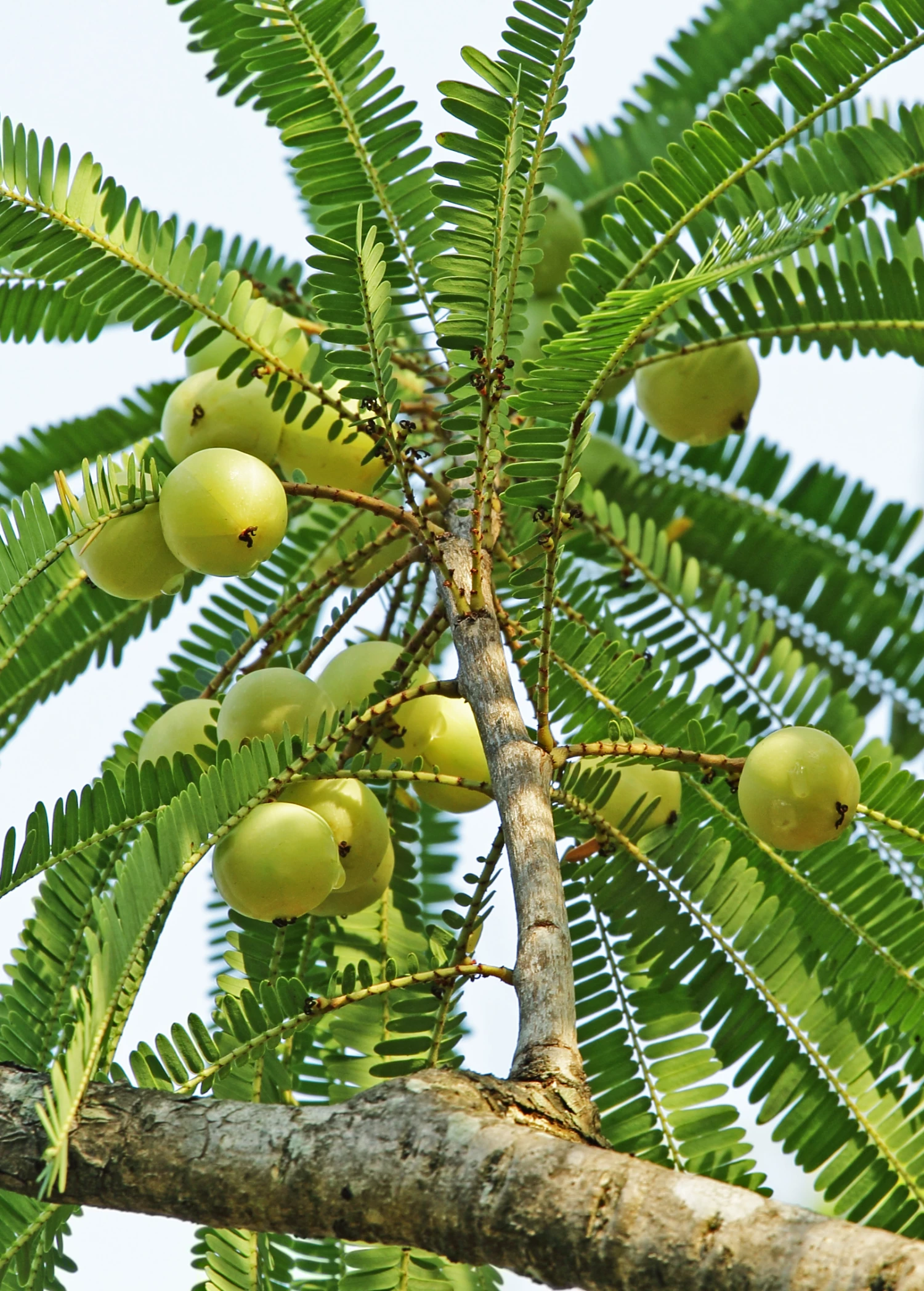“`html
How a quarter-sized golden berry became Ayurveda’s best-kept secret against aging, inflammation, and immune challenges

The Forgotten Fruit That Outpowers Oranges
In our relentless pursuit of wellness, we’ve overlooked what Indian grandmothers have known for millennia – that the unassuming Amla berry carries 20 times more vitamin C than oranges, enough antioxidant power to make blueberries blush, and a unique combination of five Ayurvedic tastes that stimulate holistic healing.
Modern science now confirms what ancient texts documented: this drought-resistant superfruit doesn’t just boost immunity—it rewrites cellular aging, calms inflammation at its source, and detoxifies with unprecedented efficiency. Yet most wellness enthusiasts remain trapped in a cycle of expensive supplements and fleeting trends, unaware that nature’s perfect vitamin capsule grows on a tree.
Key Benefits at a Glance:
- 650mg vitamin C per 100g (vs. 53mg in oranges)
- Unique combination of 5 Ayurvedic tastes for holistic benefits
- Potent anti-aging ellagitannins and flavonoids
- Natural adaptogen for stress resilience
The Science Behind the Superfruit
Physical Structure
The Amla fruit’s fibrous flesh and thick skin evolved to protect its precious nutrients in harsh climates. Its six vertical grooves aren’t just decorative—they maximize surface area for phytochemical production.
Chemical Powerhouse
Beyond its legendary vitamin C content, Amla contains:
- Emblicanin A&B: Rare antioxidants with 82% bioavailability
- Quercetin: Anti-inflammatory flavonoid
- Gallic acid: Neuroprotective compound
- Pectin: Soluble fiber for gut health
How It Works
Amla’s compounds work synergistically:
- Vitamin C recycles other antioxidants
- Tannins protect nutrients from heat degradation
- Fiber slows sugar absorption
- Phytochemicals activate longevity pathways
Amla vs. Common Immunity Boosters
| Feature | Amla Berry | Vitamin C Supplements | Blueberries | Turmeric |
|---|---|---|---|---|
| Antioxidant Capacity (ORAC) | 261,500 | 0 | 9,621 | 127,068 |
| Bioavailable Vitamin C | 650mg/100g | 500-1000mg | 9.7mg/100g | 0.7mg/100g |
| Anti-Inflammatory Compounds | 12+ identified | 1 (ascorbic acid) | 4-5 | 1 (curcumin) |
| Daily Cost | $0.25 (homegrown) | $0.75-$1.50 | $1.20 | $0.40 |
| Cultural Heritage | 5,000+ years | 80 years | Native American use | 3,000+ years |
Data sources: USDA Food Database, Journal of Agricultural and Food Chemistry, Ayurvedic Pharmacopoeia
The Amla Transformation Journey
Chronic Fatigue
Morning exhaustion, frequent colds, and brain fog become your norm despite expensive supplements
The Breaking Point
Blood tests reveal stubborn deficiencies. Your synthetic vitamins aren’t being absorbed
Amla Discovery
You learn about food-based nutrition from Ayurveda and plant your own Amla tree
Vibrant Health
Within months, your energy stabilizes, skin glows, and blood markers improve dramatically
Real Transformations
“After years of taking vitamin C tablets with no improvement in my gum health, I started eating two fresh Amla berries daily. Within six weeks, my dentist couldn’t believe the change in my gum inflammation scores.”
— Michael T., Functional Medicine Patient
“My Amla tree is my most valuable wellness investment. I use the berries fresh in season, make preserves for winter, and even dry the leaves for tea. It’s eliminated my $150/month supplement habit.”
— Priya N., Ayurvedic Practitioner
“As a cancer survivor, I was skeptical about ‘superfoods,’ but the research on Amla’s ellagitannins convinced me to try. My oncologist says my blood work shows the best antioxidant levels in his practice.”
— David R., 5-Year Survivor
Grow Your Own Ancient Pharmacy
Our organically grown Amla trees arrive ready to thrive in USDA zones 9-11 (container-grown for colder climates). Each purchase includes our 60-page cultivation guide with traditional preparation methods and modern recipes.
Why Amla Deserves a Place in Your Wellness Ecosystem
In an era of overprocessed superfoods and isolated nutrients, the Indian gooseberry stands as a testament to nature’s perfect design. Unlike synthetic vitamin C supplements that flood the market, Amla delivers its antioxidant benefits through a complex matrix of phytochemicals and bioflavonoids that modern science is only beginning to understand.
For Ayurvedic practitioners, functional medicine enthusiasts, or anyone seeking natural anti-aging solutions, growing an Amla tree represents more than gardening—it’s cultivating immune resilience, digestive health, and cellular protection in its most bioavailable form. As research continues to validate its anti-inflammatory properties and cancer-preventive potential, this ancient fruit is poised to become a cornerstone of preventive healthcare worldwide.
The question isn’t whether you can afford to grow Amla—it’s whether you can afford not
